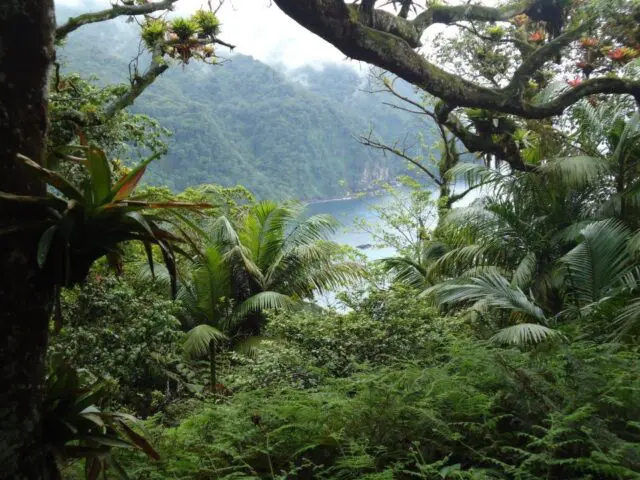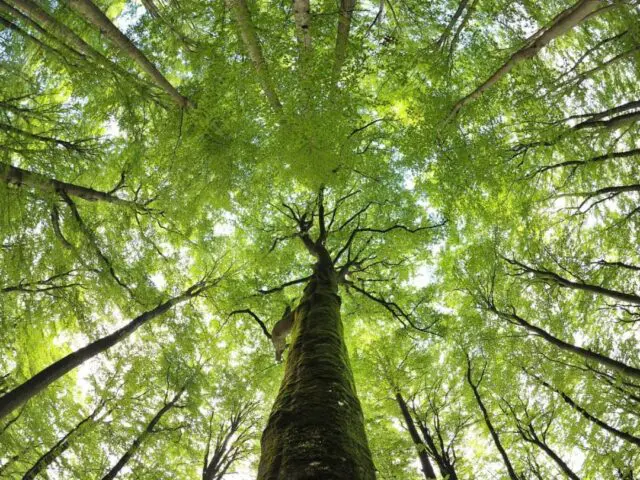Arbor Day is celebrated in Costa Rica every June 15th, thanks to an Executive decree established in the year 1915. The date today maintains the purpose of protecting the environment, mainly the wooded areas of the country.
It is a commemoration to reflect on the benefits received by forests for all living beings. Let’s remember that trees transform carbon dioxide, minimize flood risks and prevent soil erosion.
It should be noted that the person who promoted the Decree was the President at that time, Alfredo González, his initiative has been the example of a large part of Costa Rican society over the years, which has stood out for having an environmental performance in relation to other countries of the region and the world. This act is considered one of the first environmental laws in the country.
This date is also propitious to continue celebrating, protect and preserve the Guanacaste tree, which in 1959 was declared the National Tree of the Central American country.
Unquestionably, there are numerous organizations made up of environmental fighters who have worked for years giving value to Costa Rican biodiversity, with the objective of curbing the effects of the climate crisis and generating greater attention among Costa Ricans in the face of the indiscriminate felling of our forests.
Trees must be looked at and loved as our best allies, since they capture and recharge water sources, release oxygen and capture carbon dioxide. They protect the health of all living beings on earth.

Costa Rica bets on reforestation
Costa Rica in the 80’s, according to experts, had one of the highest rates of deforestation, since then efforts have increased in forest conservation, reforestation, and ecotourism that currently captivates millions of travelers of all the world.
Reaching net zero emissions
The country of the most striking and precious forests, rich in biodiversity, remains committed to reaching net zero emissions for the year. Among the plans in Costa Rica is the power to convert public and private transportation into electric, as part of its search for net zero emissions.
The country’s reforestation program has received a boost of $16.4 million from the World Bank for forests that are reducing carbon emissions. In this way, specialists in the subject anticipate that the program will bring a total of 60 million dollars by the end of 2025, funds that Costa Rica hopes can double the amount of protected forests.

Payment for Environmental Services
In the nation, let us remember that there is a forestry law approved in 1996 that established the program called Payment for Environmental Services (PSA in spanish), with financing from the gasoline tax.
The PSA awarded farm owners who establish forest plantations around $60 per hectare (2.5 acres) annually in exchange for four “environmental services” (water, scenic beauty, biodiversity, and carbon) associated with forest conservation. Currently, the program covers more than 276,000 hectares (680,000 acres).
Did you know that 57% of the Costa Rican territory is covered with trees?
Through a cartographic analysis, it was known in December 2022 that trees cover 57% of the territory of Costa Rica.It is a valuable tool “A Map of Forests”, presented by the Institute of Research and Forest Services of the National University (Inisefor-UNA) and the Ministry of Environment and Energy (Minae), in conjunction with the National System of Areas of Conservation (Sinac).
During the creation of the tool, those responsible accumulated information from the dry and rainy seasons of 2021 to determine the extension of six types of forests: mature, secondary, deciduous, mangrove, forest plantation, and yolillal.It is worth noting that, with the map, it will now be possible to update, every two years, the state of the forest cover of that site and of others, throughout the country.
More details
Of the 51,179 square kilometers (km²) that make up the Costa Rican land space, 29,223 km² are covered with trees.Of the 29,223 km2 mentioned, 24.2% (7,077 km²) are mature forests, that is, they have evolved freely without much human footprint and free from extreme phenomena such as hurricanes or fires.23.2% (6,794 km²) are secondary forests, which are those that were saved and regenerated after partial or total felling.
Beyond everything, what counts is the effort, and that for each grain of sand for the leaders of environmental organizations, today the totally favorable results of the country, its forests and its protagonists: the trees, are remarkable. Bravo for that!

